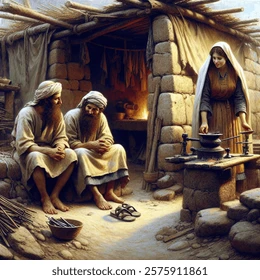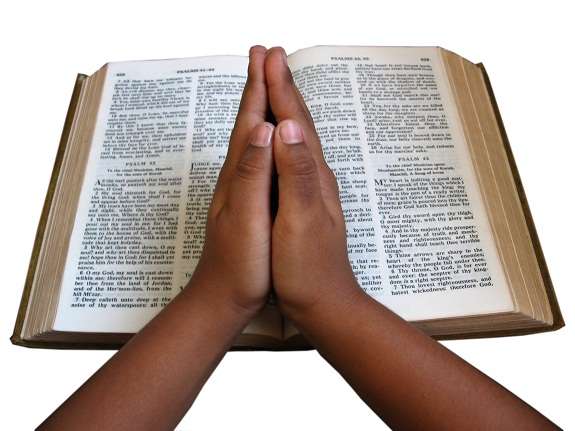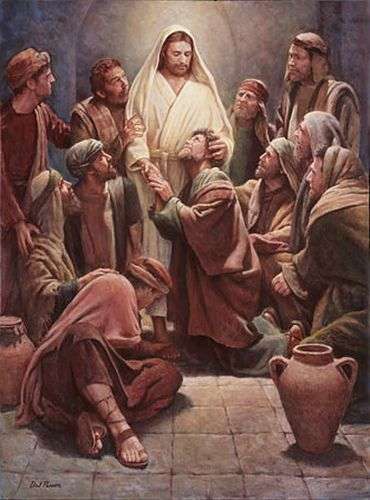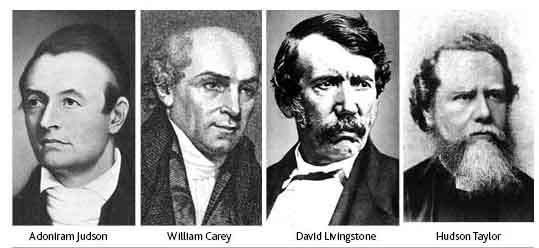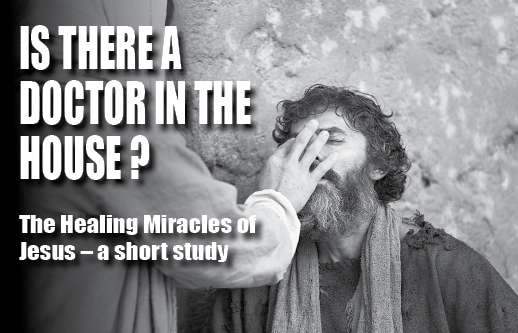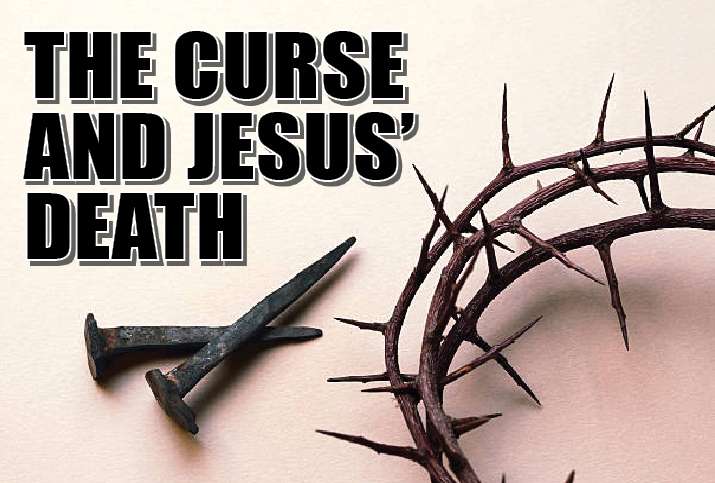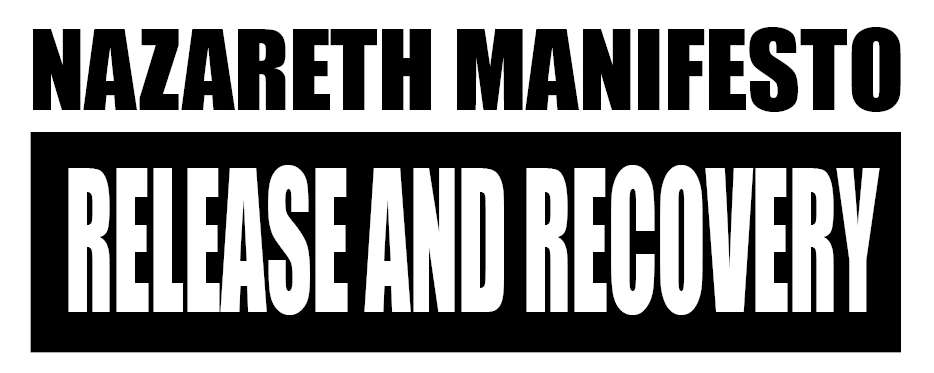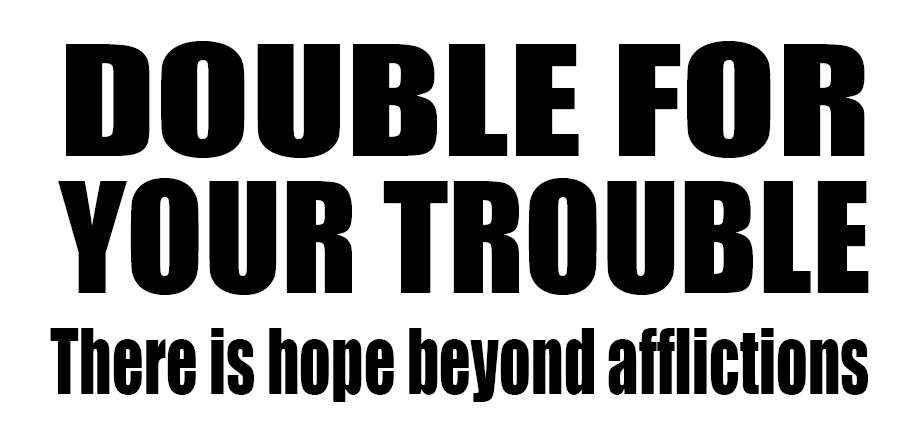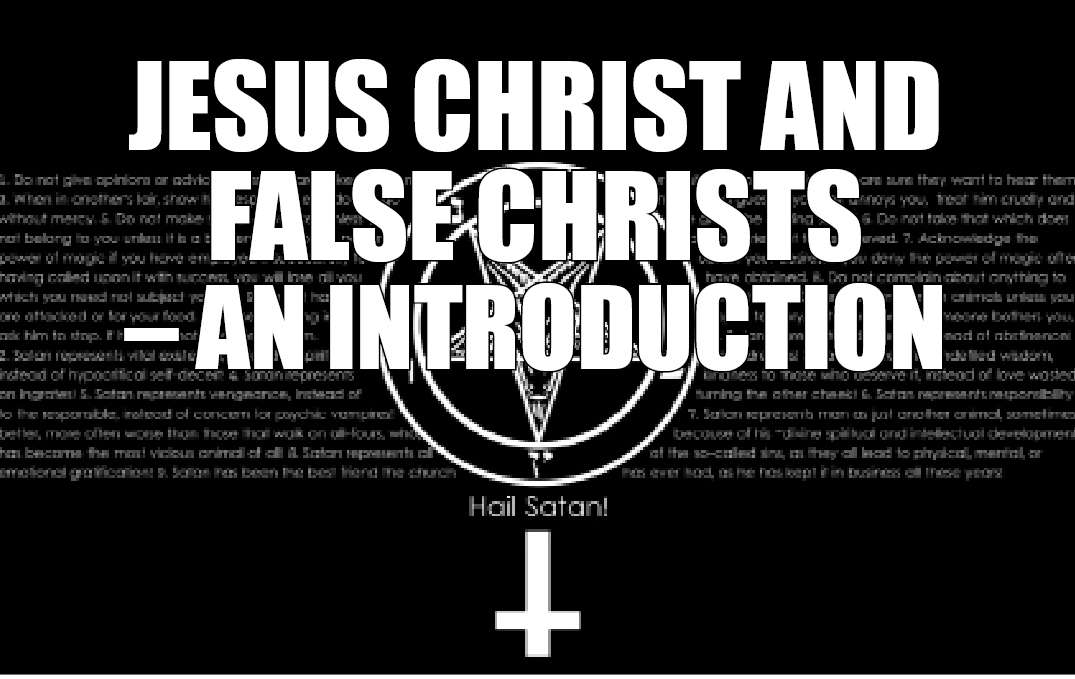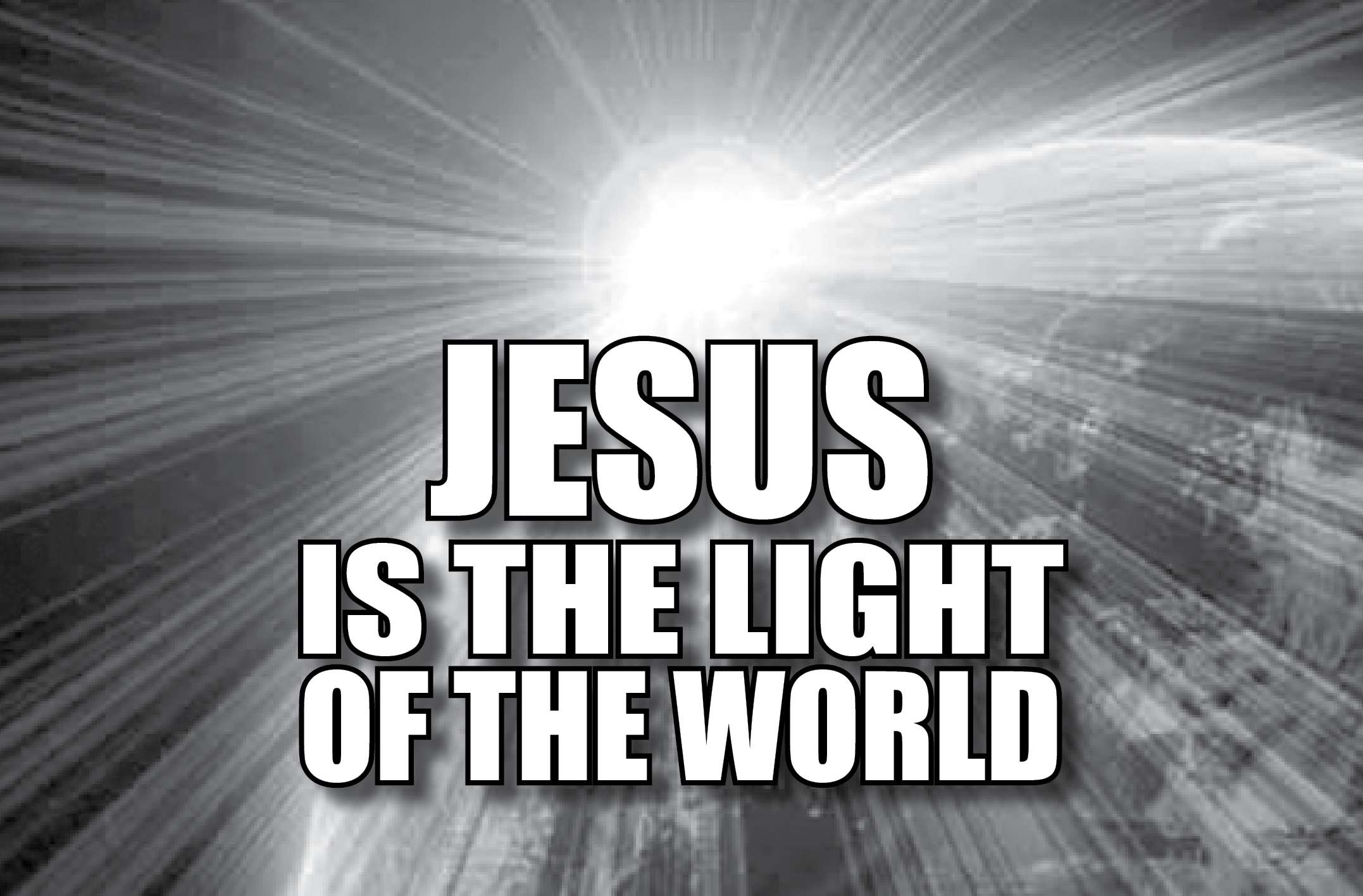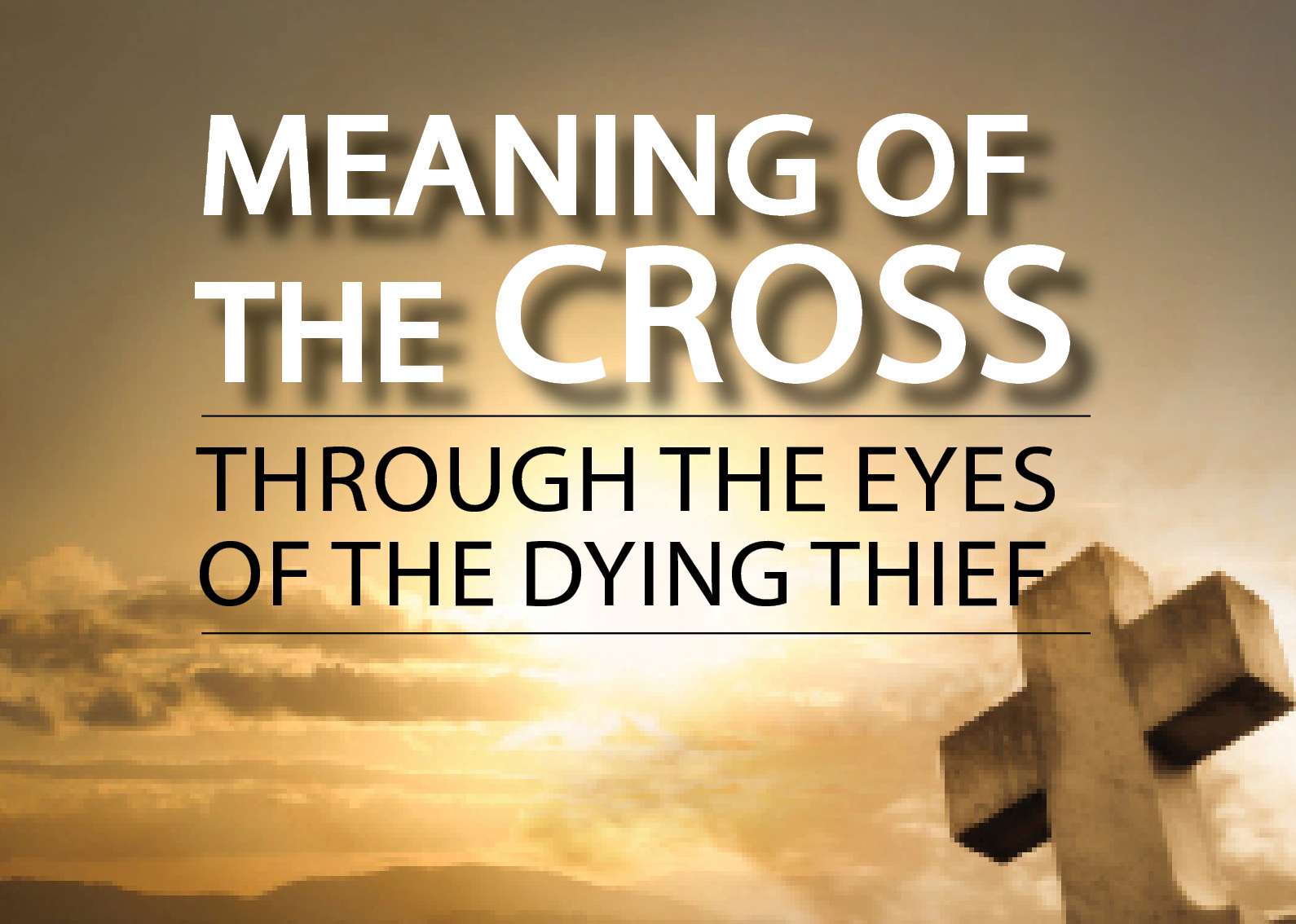

Jehovah-Tsidkenu: The Lord is My Righteousness
Dr. Kris A. Jackson
“How can a man be righteous before God?” (Job 9:2) Job wondered, you’ve wondered. What’s right? Can I be right? Preachers talk about getting right with God. Conscience tells us what is right but it seems things aren’t right. I need to make things right. How? To whom? Such conversations have plagued every mind since Adam stood behind the trees of the garden trembling in guilt. The world points its finger. Self adds to the condemnation. The alienated heart fears exposure, fears going to hell, fears its own self. Is there a blanket wide enough to cloak my shame? Job ponders again – “Oh that one might plead for a man with God, as a man pleads for his neighbor!” (Job 16:21)Unfortunately he found no mediator.
He found no “go-between” because no human was capable of bridging the gap. Wrong cannot produce right. A drowning man is of no use to a capsized vessel. Fallen man’s only hope then would come from above, for, only God is “right”. Man’s best effort at clearing the record was in vain. “All our righteousnesses are as a filthy rags”, said Isaiah. Note the plural, “righteousnesses”, all our good deeds, works, apologies and attempts at setting things straight.The soul needs a covering, not justice but justification, a cleared record, dismissal of all criminal charges filed before the court.But it requires someone who is “right” who can plead our case if not also assume our debt.
We haven’t room to share the whole plan of redemption, suffice to say that God provided satisfaction for every concern in a single Person. A good man, actually a God man would be born. As man He could grasp the hand of man and as God he could reconcile us to God. The prophet Jeremiah foresaw and introduced this Person - “In his days Judah shall be saved, and Israel shall dwell safely: and this is his name whereby he shall be called, THE LORD OUR RIGHTEOUSNESS” (Jeremiah 23:6). I like the capitals because my account needed capital. This long-awaited Messiah would make things right because He is right.
The Hebrew title is Yahweh-Tsidkenu, Yahweh or Jehovah being the name of the self-existent One, the covenant God.Though very God the title is attributed to a Man, a righteous Branch and King of the legal lineage of David (Jeremiah 23:5). Jehovah came as a man, Jesus of Nazareth – “To wit, that God was in Christ, reconciling the world unto himself…” (2 Corinthians 5:19) The name Yahweh has to do with self-existence or eternality, I AM, or literally, I BE. It speaks of God’s “forever Being” which suggest that He is “our righteousness” both now and forever. Likewise with all the other covenant expressions, Jehovah-jireh, Jehovah-shalom etc., He continues to be so yesterday, today and forever. The designation tsidkenu comes from the root word tsedeq, as in the Zadok, righteous priesthood. It speaks of blamelessness and upright standing before God.A similar title, Zedekiah, means the Lord is righteousness.
We are quick to declare Jehovah as “My” righteousness though the text says He is “Our” righteousness. His covenant titles are collective as well as individual. Christ died once and for all for all men. We need to be reminded that He is our brother and sister’s righteousness as well as our own which silences any criticalness we might have toward others. “But of him are ye in Christ Jesus, who of God is made unto us…righteousness…” (1 Corinthians 1:30) If He is our righteousness, our responsibility is to wake up every morning and put on Christ as our covering robe – “Let your priests be clothed with righteousness; and let your saints shout for joy” (Psalm 132:9). We have the right to “shout for joy” because a truce has been called. By an act of grace the Judge has declared believers not guilty in the negative sense and righteous in the positive sense.
“For he hath made him to be sin for us, who knew no sin; that we might be made the righteousness of God in him” (2 Corinthians 5:21). He was “made” sin that we might be “made” righteous. The thing made has no boast over its creator, it can only perform its function for being. If Christ is our righteousness then our response is to walk in righteousness. There are a few obvious discoveries…
1. Righteousness is received, not earned
Resist ever seeing yourself as unworthy of God’s favor. In Christ we are made righteous, we didn’t merit it. “Knowing that a man is not justified by the works of the law, but by the faith of Jesus Christ…”(Galatians 2:16) This happy, secure state is not something any fallen human can achieve, merit or earn for it comes totally on the merits of Another, Christ. Paul said we “receive abundance of grace and the gift of righteousness” (Romans 5:17). As you received forgiveness of sin receive righteous standing. It is a free gift. Anything worked for is repaid as a wage but a gift is to be received, with thanksgiving of course. As the Hebrews were safe behind the blood-stained door; the church is “accepted in the beloved”). Our acceptance is only “in him”. The price was substitutionary, a transfer of account balances, “the just for the unjust” (1 Peter 3:18), Christ in our stead, my repulsiveness for His righteousness. Who wouldn’t accept such a trade?
2. Righteousness is imputed, not attained
Theologically, imputation means the attributing of righteousness to a person vicariously from another. The root is the simple word “put”, im-“put”-ation. Christ took His own righteousness from the divine ledger and “put” it in our account. David wrote – “Blessed is the man to whom the LORD does not impute iniquity…” (Psalm 32:2) Paul added his own interpretation – “David also describes the blessedness of the man to whom God imputes righteousness apart from works” (Romans 4:6). On the negative side, He does not impute guilt, on the positive side He imputes righteousness. We have nothing to do with the transfer of spiritual wealth. Our part is only to receive. Accept the free gift like Zacchaeus who came down from the tree and “received [Jesus] joyfully” (Luke 19:6).
The imputation has to do with position not performance.If He is our righteousness we are not in the equation. This is hard to accept for people who base their standing with God on performance, but we are accepted in Christ, no other way.Those called righteous in the Bible walked by faith, not works. They weren’t justified by works though they had a justification proven by works. Abraham’s faith was “counted to him for righteousness” (Genesis 15:6).
Holiness is a whole different subject. When it comes to sanctification the individual plays a huge role – “Having therefore these promises, dearly beloved, let us cleanse ourselves from all filthiness of the flesh and spirit, perfecting holiness in the fear of God” (2 Corinthians 7:1). We are called to cleanse ourselves but not to justify ourselves. At the brazen altar the worshiper was declared righteous totally on the merits of the slain sacrifice; at the laver the worshiper had a duty to consecrate himself for useful service. The first is imputation from above, the second is consecration from below. The two works are not the same.
3. Righteousness is finished, not in process
On the cross Jesus cried, “It is finished”, not“to be continued”. The work was once and for all, forever. Done does not mean yet to do. There is nothing a believer can do to enhance his standing. No matter how loyal I may be to the Jackson family I am no more Ron and Dee Jackson’s son than I was the day I was born.Of course, both were pleased when I walked uprightly. If He is our righteousness and He is eternal then our standing is sure and is forever.“He who practices righteousness is righteous just as he is righteous” (1 John 3:7), but we are not righteous because of what we do but because of who we are. Being declared righteous the released spiritual prisoner desires to live a righteous and holy life. Instruction must be obeyed – “follow after righteousness, godliness, faith, love, patience, meekness” (1 Timothy 6:12). Being made righteous we adopt Christ’s ways. This new standing before the throne includes some great benefits:
A. We stand guiltless before God
After being sprinkled with the blood of the slain bird the leper was “pronounced” clean (Leviticus 14:7). Oh, to hear the judge declare the verdict of innocence as his gavel strikes the bench! “Who is he that condemns? It is Christ that died, yea rather, that is risen again, who is even at the right hand of God, who also makes intercession for us” (Romans 8:33,34). You are declared righteous!
B. We have advocacy in the throne room
Being made righteous does not mean we no longer live in the flesh. The ideal is that a believer should never sin – “My little children, these things write I unto you, that you sin not. And if any man sin, we have an advocate with the Father, Jesus Christ the righteous” (1 John 2:1). It doesn’t say “BUT if any man sin”, rather “AND if any man sin”. I thank God for this clause in the script. If I fail in practicing righteousness I have a capable attorney, Jesus Christ the Righteous. I plead His standing before the throne, now no less than when I needed redemption from the old life.
C. We can pray with great confidence
Take the name of Jehovah-Tsidkenu with you into the prayer closet. With Him as High Priest and Advocate we have boldness in prayer. Without His righteousness we lack confidence. “If I regard iniquity in my heart the Lord will not hear me” (Psalm 66:18), but “If our heart does not condemn us, we have confidence toward God” (1 John 3:21). By all means grow in uprightness. Walk worthy of your vocation. Do the will of God from the heart. But remember, if you fail He has never failed, and our approach in prayer is not in our own names but in Jesus’ name, the same name uttered by Jeremiah, “THE LORD OUR RIGHTEOUSNESS”.
D. We can walk free from condemnation
Are you made righteous? Then “let the righteous be glad and rejoice” (Psalm 68:3). The view from the mirror may not be the same as the view from heaven filtered through the shed blood. If the leper has been pronounced clean it would be an insult for him to continue holding his hand over his upper lip crying, “Unclean, unclean!” So what if people criticize and judge you? Your judgment was settled with spikes on Calvary.“There is therefore now no condemnation to them which are in Christ Jesus, who walk not after the flesh, but after the Spirit” (Romans 8:1). Once the priest exited the outer court with its brass furnishings, representative of condemnation, and entered the inner sanctuary, he never saw brass again, only the gold furnishings worthy of a king. Leave the brass of condemnation behind, enter the gold of sonship.
E. We are qualified to reign in life by Christ
Let us add one more important truth. Those who receive abundant grace and the gift of righteousness are now called to “reign in life through the One, Jesus Christ” (Romans 8:17). You may not be a billionaire or millionaire but you are a joint-heir and that is unimaginable wealth. Christ’s priesthood (and subsequently ours) is after the order of Melchizedek. Note the Hebrew word zedek or tsedeq, the basis for this study in righteousness. He is melek and tsedeq, a king and priest. If we suffer with Him we will reign with Him. If we wrap ourselves in the robe of His righteousness then we have the right to don the crown of His royalty. Made right before God we are made regal before men. When the heart is pure vertically before heaven the hand is powerful horizontally before men. Made righteous we can now minister righteously. His cross has purchased our crown.
So, if you’ve spent your life looking for Mr. Right, see your reflection in the water, you’ve just found him, “in Christ”.

